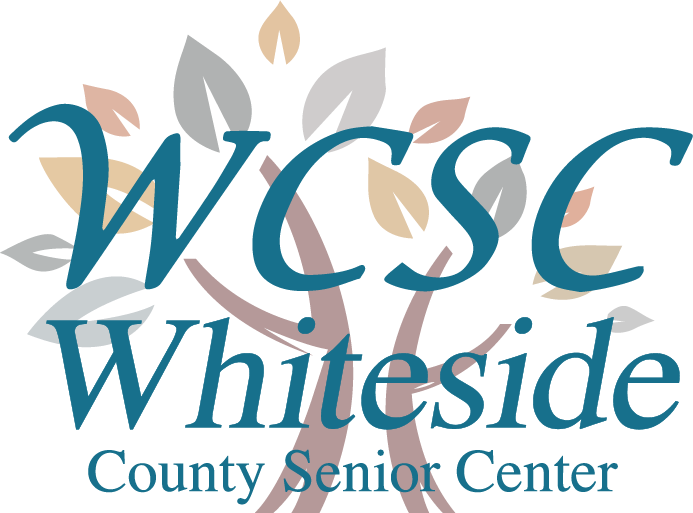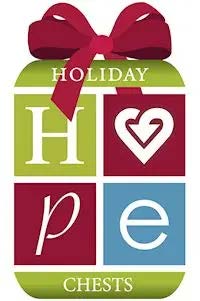New Church Office Hours
Please note these new church office hours beginning in January! The church office will be open Tuesday through Thursday from 8:00am-4:00pm.
Please note these new church office hours beginning in January! The church office will be open Tuesday through Thursday from 8:00am-4:00pm.

The Whiteside County Senior Center will be the recipient of the January 2026 Special Offerings. This facility provides companionship, conversation, and community for seniors year-round. Their services include shared meals, game days, wellness checks, and education. During the holiday season, not all seniors have family nearby with whom they can celebrate. Loneliness doesn’t take a holiday. For some, the holidays are just another reminder of how disconnected they feel. Our donations to this cause can help alleviate this feeling for some of our seniors. Please consider helping with a generous donation.
Pets are known to improve the lives of their human family members. Not only are pets great companions, but they can also boost your mental physical health and your social life.
Most people can find a pet to love, no matter their health concerns. Talk to pet adoption coordinators about finding a good match for your health and lifestyle. Here are some general recommendations:
For people who are trying to lose weight or get more active — Dogs can be especially great motivators for getting active. Find one that wants to join you on a walk, paddle or hike.
For people with depression or anxiety — Pets can be comforting and provide a sense of purpose that contributes to self-worth. They can be loyal and loving regardless of what you are navigating. They also keep their owners on a schedule, which can be helpful for people with mental health conditions.
For people with weakened immune systems — Avoid pets that are most likely to carry germs or parasites, such as kittens and puppies under 6 months old, reptiles, poultry, rodents, exotic pets, and sick or feral animals.
For people with limited mobility — Consider your limits when choosing a pet. It might be difficult to haul big bags of food or keep up with an active pet. Pets also can be tripping hazards, so train them not to push or pull. And train yourself to watch for them.
For people with asthma and allergies — Pets with fur or feathers can trigger itchy eyes and sneezing, so you may want to opt for another type. Alternatively, some dog and cat breeds, such as poodles and Siberian cats, are less likely to trigger people with allergies.
From the Mayo Clinic. Submitted by Nancy Rasmussen, Parish Nurse
If you haven’t talked to your doctor lately about your blood pressure, it may be time for a check-up. The definition of high blood pressure (hypertension) changed in November 2017, when the American College of Cardiology and the American Heart Association released new guidelines for diagnosis and treatment of the condition. High blood pressure used to be diagnosed at a measurement of 140/90 millimeters of mercury (mm Hg) or higher. Now these authorities state that if your blood pressure is 130/80 mm Hg or as it was before: less than 120/80 mm Hg. What if your blood pressure is between normal and the new hypertension threshold? That’s considered “elevated,” something that should be watched and addressed with exercise, a healthy diet low in salt, limited alcohol intake ( no more than one drink per day for women, one or two drinks per day for men), and weight loss as needed. The new guidelines are based on evidence that having a systolic (top) measurement from 130 to 139 and a diastolic (bottom) measurement from 80 to 89 doubles the risk for having a heart attack, stroke or other complications.
From the Harvard Health Letter. Submitted by Nancy
Rasmussen, Parish Nurse

The Special Offerings for December have once again been designated by the Congregation Council to be donated to the Sterling Buddy Bag Program. The need for this community food program becomes more pronounced each month. Food insecurity in our community is often related to housing insecurity, and both issues affect our school-age children. The food is simple, nutritious, and something children can prepare with minimal effort. The program is sponsored by community churches, public schools, and the Coalition for Community Services (ICCS). Most of us have plenty of food on our tables, but that is not the case for many families. Please consider a generous donation to support this ministry and the growing need for families in our community.
Hello, St John’s Family! Since our congregation has become considerably smaller in recent years, we have fewer hands to help with our church services, committees, and activities. There are many components needed to keep our church thriving, and just a handful of people are helping. Prayerfully consider sharing some of your time or talents. Below are some options, and anything you can offer would be greatly appreciated. Could you please look at the list below to see if you (your family) would be interested in helping with? If there is something that speaks to you, please check your selection(s) and complete the bottom section. You may return this form to the church office or in the offering plate.We are so grateful for our St John’s family and the many wonderful gifts we have. If you have any questions, please reach out to a council member at any time. Click here to download the form.

Poinsettias are wanted to decorate St. John’s Chancel for Christmas.You can order from the group order or purchase your own. If you purchase your own poinsettia and plan on picking it up, please place a tag on it with your name and bring it to the church no earlier than December 23rd. All poinsettias should be RED! Plants can be picked up after the Christmas Eve Service. Payment should accompany the form. Make checks payable to St. John’s Lutheran Church. Deadline to turn in form & payment is December 15th. Click here to download a Poinsettia order form.

The November Special Offerings will support the LSSI Holiday Hope Chest initiative. This program establishes a wish list for a child being served by Lutheran Social Services of Illinois. Gifts are purchased from that list to be given at Christmas. The St. John’s Children’s Offerings are also supporting this program, and our youth will purchase items for four children this year. Any additional monies will be given to support the Holiday Hope Chest program as a whole. Please help by supporting these underserved children in our community during the Christmas season.
Most everyone experiences an occasional nosebleed. It can be scary, but usually it’s a minor annoyance. Common nosebleed causes can include change of seasons, dryness, scratching certain medications and injuries. People on blood thinners may have worse nosebleeds than others. Most nosebleeds stop on their own or stop after a few self-care steps:
Talk to your healthcare team if you’re having nosebleeds more than once a week, even if you can stop them fairly easily. Determining the cause and avoiding risk factors or adjusting medications may make nosebleeds less likely.
A cold sore is a fluid-filled blister — or a group of blisters — that typically develops around the lips. It’s caused by the herpes simplex virus, which is typically passed from skin-to-skin contact. To manage cold sores:
Stop the spread — Avoid touching the sore, as that can make it worse and lead to spread. Refrain from kissing or other direct contact. Wash your hands regularly. Don’t share food, beverages, towels, lip balms or razors with others. Throw away toothbrushes you used while you had the cold sore.
Treat it early — The nonprescription antiviral cream docosanol (Abreva) may reduce symptoms and shorten recovery time. Docosanol is most effective if used when you first notice tingling or other early signs that indicate a cold sore is forming.
Control the pain — A pain reliever such as acetaminophen (Tylenol, others) or ibuprofen (Advil, Motrin IB, others) may
help. Nonprescription cold sore gels or ointments containing benzocaine, lidocaine or benzyl alcohol also can relieve
symptoms. Applying a cool compress or sucking on ice chips may help minimize burning or itching. Dabbing petroleum jelly on the sore and surrounding skin helps reduce dryness and cracking.
Get a prescription — See your primary care physician or a dermatologist if a cold sore lasts for two weeks or keeps recurring. You may be eligible for treatment with an antiviral cream or pill. Antiviral drugs may take hours or even days off your recovery time.
Know the causes — Triggers that may “wake up” the herpes virus to cause cold sores include stress, becoming ill with a cold or the flu, exposure to sunlight or strong winds, changes in the immune system, or hormonal changes.
From Mayo Health
Submitted by Nancy Rasmussen, Parish Nurse